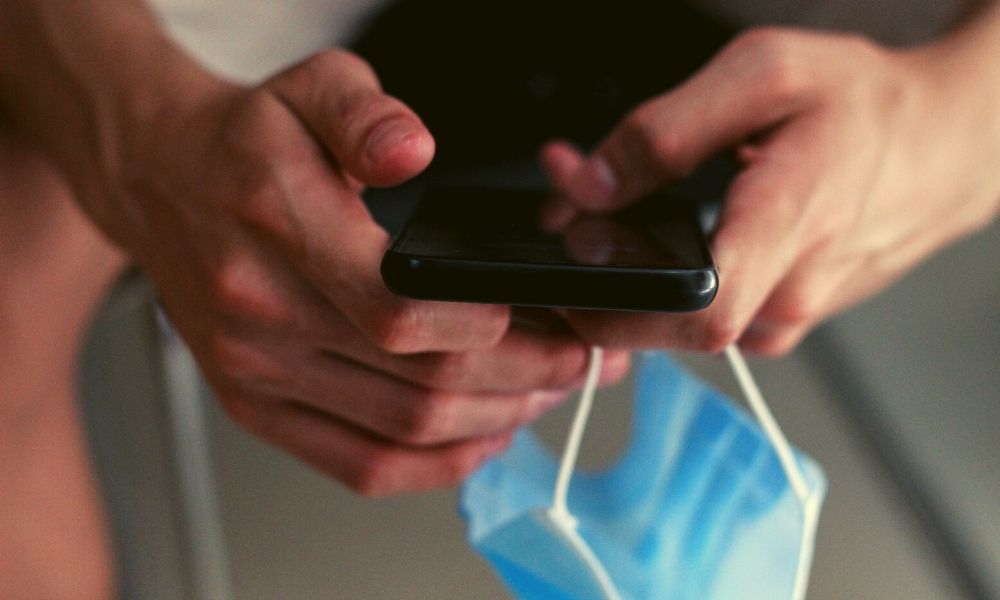
Image Credits: Unsplash
How Social Media Usage Reshaped India's Healthcare During Covid
Writer: Tashafi Nazir
For most people, journalism sounds hectic and chaotic. For her, it's a passion she has been chasing for years. With an extensive media background, Tashafi believes in putting efforts on presenting a simple incident in the most interesting way.
India, 9 July 2021 3:58 AM GMT
Editor : Sanal M Sudevan |
Keen to explore new things and learn something new every day in the field of jounalism.
Creatives : Tashafi Nazir
For most people, journalism sounds hectic and chaotic. For her, it's a passion she has been chasing for years. With an extensive media background, Tashafi believes in putting efforts on presenting a simple incident in the most interesting way.
Studies suggest that social media may bring about a seismic shift in healthcare and make it more immediate and accessible to all. When used prudently, social media can be an indispensable tool and online dialogue during the pandemic.
India has been among the worst-hit countries when it comes to the Covid-19 pandemic. The second wave of coronavirus has been no less than devastating. There has been extensive coverage about how the government has struggled to meet the unprecedented demand for medical care amid limited resources and a crumbling infrastructure. However, the one pattern that was noticeable among all the distress is the conversation on social media about the disease and all things related.
According to a recent study by Sortlist, a Belgian-based platform, social media usage across all age groups during the pandemic saw a significant spike worldwide. It stated that social media usage increased overall by 78 per cent among surveyed Millennials and Gen Z during the pandemic, and Baby Boomers also increased the amount of time they spend on apps like Facebook, Instagram, Twitter and YouTube, with many joining the platforms for the first time during the coronavirus-related lockdowns.
In May 2020, India was among the five nations with the highest volume of social media conversations about COVID-19. During the tumultuous second wave when the daily count of cases shot up to as high as over 4 lakh cases, the pandemic on the other hand brought people closer. The entire country came together to help each other, albeit virtually. People could not do it in person, they achieved over social media conversations – selflessly assisting strangers at a time of need.
Helping Hand
Social media users mobilised resources and citizen groups to aid the thousands of frantic, worried, and confused people with family members in dire need of medical help. Tweets and retweets using hashtags like #CovidEmergency and #CovidSOS helped spread the word and lend a much-needed hand to patients and caregivers who desperately needed those limited hospital beds, medicines and medical equipment.
The other social media platforms played a significant role too. Celebrities and influencers collaborated with NGOs and appealed to their followers on Instagram to help those in need.
Actor Sonu Sood turned into a real-life hero by helping the needy in the best way possible. The actor opened a channel called 'India Fights With Covid' on Telegram mobile application, through with he used to find hospitals, oxygen and medicines for the needy. He also responded to as many as SOS requests he could.
People offered meal services, grocery shopping, and other help via Facebook, Google Docs as well as Sheets. They came handy to create and share lists about the availability of hospital beds, numbers of doctors and mental health professionals, and other updated information. There have even been cases of people signing up on Tinder and similar platforms to find plasma donors!
Right from the start of the pandemic, social media has been used extensively to disseminate information about preventive measures, what to do in case of symptoms, side effects of the disease, where to seek medical help, and other related factors. Things like digital patient-doctor engagement, quicker and on-demand services as well as digitalised documentation of patient records became the norm, even across more miniature cities and towns.
Healthcare Trends
Many healthcare apps also used its social media pages and a reliable telemedicine clinics network to connect patients in small towns to specialist medical professionals in bigger cities. Practo primarily uses Facebook to educate users on various health-related topics. Several other apps are leveraging social media to reach people all over the country.
COVID-19 has affected people physically as well as mentally. Online platforms are where many people have been expressive about sharing their health issues, feelings, and insights. Others who have been going through similar problems find that they are not alone, while professionals in the healthcare sector get a deeper look into the many issues people are experiencing, side effects of illnesses, what medicines helped, etc. Social media intelligence gathered from such online conversations can give doctors and pharma companies an unbiased insight into anything and everything related to healthcare. This information can then be used for further research, finding solutions to unique issues faced by patients and even developing new medication.
Pharma and related brands can chalk out a digital strategy to be more responsive and engaging across their social media channels, add tags on posts to make it easier for people to find relevant posts, and ensure regular publishing of informative content. Moreover, organisations can use social media as an effective tool to raise public health awareness while debunking popular myths and fighting misinformation. Studies have also found social media to be a positive influence on public health.
Studies suggest that social media may bring about a seismic shift in healthcare and make it more immediate and accessible to all. When used prudently, social media can be an indispensable tool and online dialogue during the pandemic.
Also Read: This Bengaluru NGO Delivers Learning In A Play Box Amid Pandemic
 All section
All section














